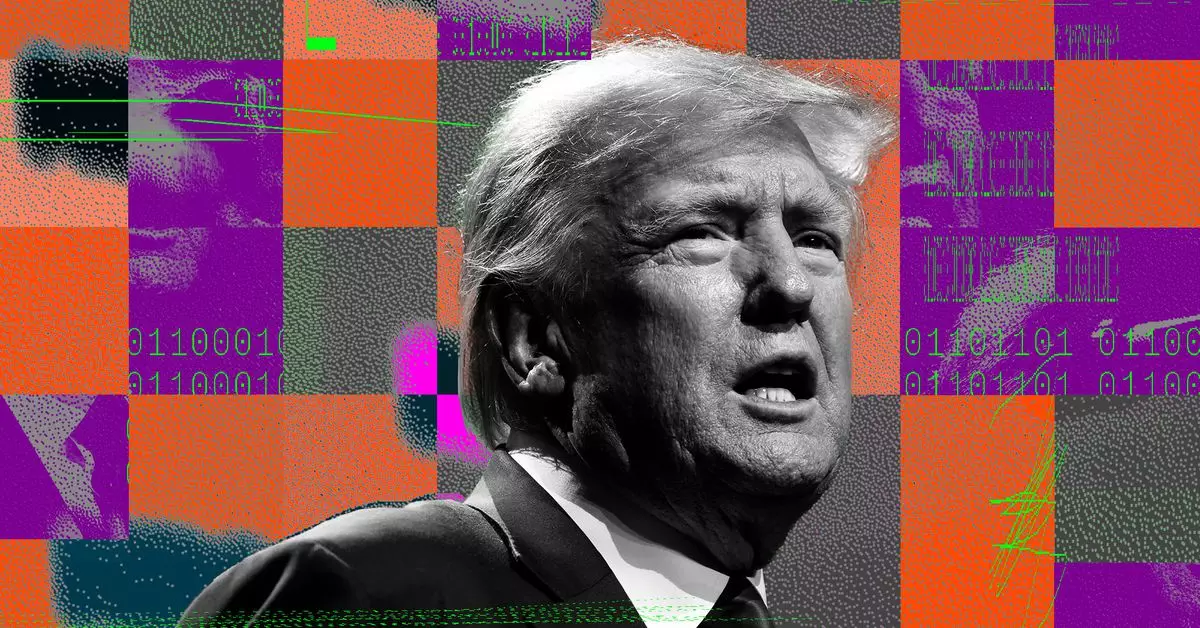The contentious relationship between socio-political dynamics and technological advancements has reached a boiling point in the United States, particularly with the case surrounding the popular social media application, TikTok. As the political landscape evolves, President-elect Donald Trump finds himself in a challenging position, attempting to negotiate the future of TikTok amid potential national security implications.
In a recent motion presented to the Supreme Court, Trump seeks permission to forge a deal potentially averting a nationwide ban on TikTok. His amicus brief argues for the necessity of resolving the looming issues through political negotiation once he assumes office. This call for intervention underscores the contentious debate swirling around the application, with concerns predominantly focused on its Chinese parent company, ByteDance, and its implications for U.S. national security.
The Supreme Court’s decision to entertain arguments against a congressional ban on TikTok marks a pivotal moment. Critics argue that the legislation adversely impacts the First Amendment rights of millions of American users, emphasizing that banning such platforms infringes upon an essential form of digital expression. The bill mandates that if significant progress is made toward a deal ensuring TikTok’s operational independence from China, it would grant the President the authority to suspend enforcement actions, thus providing a lifeline to the platform.
Central to the discussion is a pressing deadline of January 19th, coinciding with Trump’s inauguration. His request to the Supreme Court to extend this cutoff reflects a desire to explore alternatives to outright bans. The precarious timing adds urgency to the deliberations. Trump’s claim that he possesses unparalleled deal-making expertise and political clout hints at a belief that solutions can be realized in the political realm. However, he has provided no concrete details regarding the nature of the proposed deal—making the vague aspirations appear transactional at best.
Speculation indicates that any productive resolution would necessitate ByteDance divesting a significant portion of its ownership in TikTok to a U.S.-based entity. This could appease concerns of state surveillance and influence from abroad, allowing TikTok to operate under a framework perceived as safer by the American public and government. Nevertheless, these potential transactions raise questions about the validity of governmental intervention in corporate ownership structures, intertwining economic implications with national security concerns.
Trump’s previous stance during his term as President promoted the outright banning of TikTok due to fears of foreign influence. Yet, in an ironic twist, following the successful engagement of the platform during his 2024 campaign, he appears to advocate for TikTok’s endurance. The evolution of Trump’s view provides further insight into the intertwining nature of social media and political strategy. His recent discussions with TikTok CEO Shou Chew indicate a potential turning point, revealing his understanding of the platform’s significance in contemporary communication.
Trump’s amicus filing also draws parallels to international incidents, such as Brazil’s temporary ban of Elon Musk’s X (formerly Twitter), emphasizing dangers posed by censorship. By framing the debate around TikTok as a matter of freedom of expression, he aims to position himself as a champion of civil liberties in a new digital landscape. However, the defensiveness of this perspective risks diminishing the genuine national security threats perceived by many lawmakers, despite him having a large following on the platform.
While Trump is pushing for a resolution through negotiation, significant political pressures loom on both sides of the aisle. Bipartisan groups of lawmakers have rallied to express their concerns about TikTok’s implications for national security. Notable figures such as Mitch McConnell and Ro Khanna have joined a coalition advocating for the Supreme Court to dismiss TikTok’s appeal underscore a deep-seated anxiety regarding the platform.
As the January deadline approaches, the urgency surrounding this case exemplifies a larger narrative about the balance between technological innovation, consumer rights, and political governance. The outcome of this legal battle will likely set a vital precedent for future interactions between social media platforms and government regulation—addressing the delicate balance of safeguarding national interests while upholding freedoms afforded to citizens.
TikTok stands at the crossroads of multifaceted political and economic discussions. How Trump navigates this situation will have long-lasting repercussions for social media’s role in the fabric of American society. The next few weeks will prove critical in shaping not only the future of TikTok but also the broader implications of governmental oversight in the digital age.


Leave a Reply